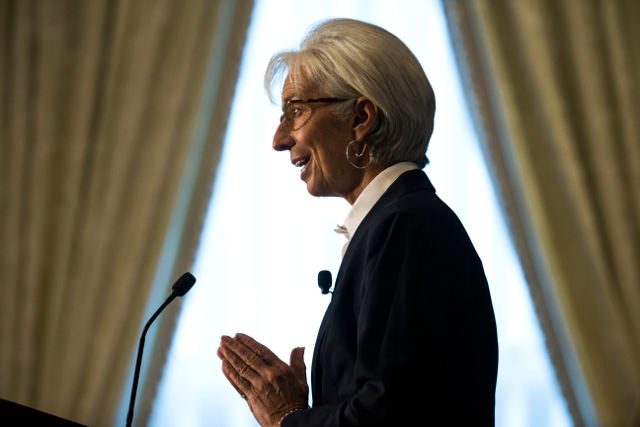SUMMARY
This is AI generated summarization, which may have errors. For context, always refer to the full article.

WASHINGTON, DC, USA – Ordered to stand trial in France, International Monetary Fund (IMF) chief Christine Lagarde is counting on the broad support and high esteem she enjoys at the global institution as she faces a tough legal ordeal at home.
Almost as soon as the news surfaced, the executive board of the IMFexpressed its backing, doubling down on the position it took when Lagarde first came under investigation in the Bernard Tapie affair in August 2011.
The IMF board “continues to express its confidence in the managing director’s ability to effectively carry out her duties,” spokesman Gerry Rice said in a statement.
France quickly weighed in on the matter. French Finance Minister Michel Sapin said Lagarde “is presumed innocent” and “perfectly capable of continuing to assumer her responsibility.”
A special French court ordered the IMF chief to go on trial over her role in a 403 million euro ($433 million) payout by the state to settle a dispute between Tapie, a French tycoon, and the partly state-owned bank Credit Lyonnais.
A legal source said Lagarde, who was France’s finance minister at the time of the 2008 settlement and allowed it to go to arbitration, is alleged to have been negligent in not challenging the massive award.
Lagarde said she would fight the court order, declaring in a statement that she has “always acted in the interests of the state and the law.”
“The issue has been around for a long time and she’s always enjoyed the confidence of her board and that’s really what counts,” Desmond Lachman, a former IMF official, told AFP.
The legal setback comes at delicate moment for Lagarde, however: her IMF mandate expires next July and she has recently expressed willingness to seek a second five-year term if the 188 member states would support it.
Could it sink that prospect?
“Clearly it doesn’t help but unless she’s convicted, I would be surprised if it greatly damages her candidacy,” said Peter Doyle, a former member of the IMF Europe department who has been a critic of Lagarde in the past.
“The main shareholders have decided to back her and want her to continue,” Doyle said in an interview.
Damages for IMF
Lagarde certainly can count some personal successes as the head of the Washington-based institution.
She was deeply involved in the decision to add the Chinese yuan to the IMF’s basket of reserve currencies, a highly symbolic move appreciated by Beijing as it seeks greater recognition for the world’s second-largest economy.
She can also welcome a preliminary agreement in the US Congress to approve long-blocked IMF reforms that will double the fund’s financial resources and, above all, give more power to the major emerging-market countries.
“A lot of member states are really supporting her. She’s done a lot of things that have strengthened her bid,” Lachman said.
In addition, Lagarde is benefiting from the apparent lack of a rival contender for job, unless a candidate is proposed by the BRICS, the group of emerging-market powers that includes Brazil, Russia, India, China and South Africa.
According to experts, a conviction could certainly change her prospects but that scenario remains cloudy, with a trial perhaps taking years to occur, and also because the public prosecutor had recommended the charge be dropped.
Whatever the outcome, the trial is an embarrassment for the IMF.
If Lagarde stands trial, images of the IMF managing director in court would cast a shadow on an institution whose austerity plans at times have been deeply unpopular.
But troubled recent history also would be dragged up. Lagarde’s predecessor, Dominique Strauss-Kahn, was forced out in 2011 over a sex scandal.
Before him, Rodrigo de Rato, who ran the IMF between 2004 and 2007, is currently under investigation in Spain for tax evasion, money laundering and concealing assets.
“This is not good for the IMF and it compounds the impression that managing directors haven’t always been picked from the most credible group of people,” Doyle said. – Jeremy Tordjman, AFP/Rappler.com
Add a comment
How does this make you feel?
There are no comments yet. Add your comment to start the conversation.